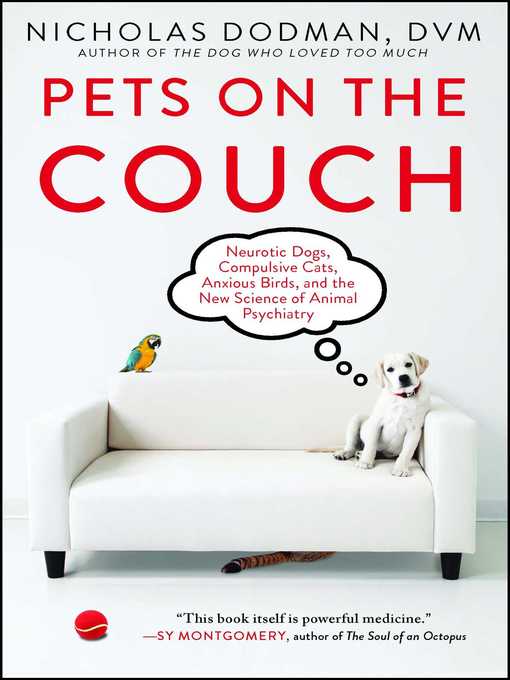
Pets on the Couch
Neurotic Dogs, Compulsive Cats, Anxious Birds, and the New Science of Animal Psychiatry
کتاب های مرتبط
- اطلاعات
- نقد و بررسی
- دیدگاه کاربران
نقد و بررسی

July 25, 2016
Veterinary behaviorist Dodman (The Dog Who Loved Too Much), founder of the Animal Behavior Clinic at Tufts University, constructs a compelling and succinct case for "one medicine," a revolutionary approach to veterinary care based on the idea that animals and humans have a similar biology and can mutually benefit from medical discoveries among all types of species. The discussion presented is easily digestible even for those unfamiliar with medical jargon and incorporates all types of perspectives on the subject to keep the material light and interesting. The science of genetic testing is mixed in with stories of concerned pet owners. Logical, well-explained links are created between the psychiatry in animals and humans. Dodman overstates his case and the narrative gets repetitive, but the passion that Dodman puts into his work shines through these shortcomings. Filled with heartfelt case studies of autistic dogs, cats with Alzheimer's disease, and horses with Tourette syndrome, among others, Dodman injects empathy into a world where sympathy previously reigned.

August 1, 2016
According to veterinarian and author Dodman (The Dog Who Loved Too Much; The Cat Who Cried for Help), the No. 1 cause of pet death is "bad behavior" such as incontinence, destructiveness driven by anxiety, etc. The reason: an outmoded, outdated view of animals and their actions. The author focuses on brain similarities between human and animals and asks if medicines that help people deal with stress and depression could also assist animals. Calling his approach One Medicine, Dodman has successfully treated dogs and cats as well as pigs and horses. One of the most interesting conditions he tackles here is obsessive-compulsive disorder, looking at Doberman Pinschers with the ailment that he says the breed is particularly prone to because of a genetic anomaly on chromosome 34. He further aids a horse suffering from cribbing, where the animal is so stressed it literally chews its stall apart, using a morphine antagonist that blocks the effects of endorphins. Through careful research, he explores how animals experience "human" problems, debunking the antiquated theory that these creatures are automatons with no feelings. VERDICT This book will appeal to dog lovers everywhere and should be required reading for anyone who works with animals.--Lisa Ennis, Alabama Coll. of Osteopathic Medicine, Dothan
Copyright 2016 Library Journal, LLC Used with permission.

























دیدگاه کاربران